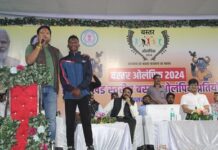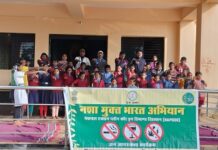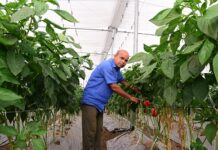An annual Pacific Rim summit is sticking with its tradition of promoting free trade and closer regional ties, shrugging off President Donald Trump’s ”America First” approach.
Draft documents issued Saturday by ministers of the 21-member Asia-Pacific Economic Cooperation forum omitted the leaders’ usual vow to combat protectionism, but still expressed support for ”free and open trade and investment” and for institutions such as the World Trade Organization.
Trade ministers from 11 Pacific Rim countries announced an agreement on pushing ahead with a free-trade deal whose destiny was uncertain after Trump dropped it.
Revisions of the deal to allow the remaining 11 countries to proceed without U.S. involvement involved a difficult balance between maintaining high standards and pragmatism, Japanese economy minister Toshimitsu Motegi said after late-night talks culminated in a preliminary agreement.
”The substance is something all the TPP countries can agree on,” said Motegi. ”This will send a very strong message to the US and the other countries in the region.”
The ministers dropped key provisions the Americans had required on protection of intellectual property, among others. They also changed the trade accord’s name to the unwieldy Comprehensive and Progressive Agreement for Trans-Pacific Partnership.
More work needs to be done for the agreement to be endorsed by leaders of the member countries at some unspecified point in the future.
Those talks took place on the sidelines of APEC summitry: ceremonial arrivals in bright tailored shirts to a gala banquet, a closed-door retreat and scores of meetings among the 21 leaders attending the event in this coastal resort city.
Increasingly, APEC summits have become more of an opportunity for host nations to showcase their growing affluence. Drafts of the agreements due to be issued later Saturday contain calls for continued work to improve food security, to help ensure the benefits of economic growth are more evenly shared and to make member countries more business-friendly.
In their retreat, leaders were expected to discuss broader regional concerns such as North Korea’s nuclear program and missile tests.
As an institution, apart from its pageantry and its tradition of drawing leaders together for face-to-face meetings, APEC mainly serves as a laboratory for trying out policies and encouraging ”best practices,” said Alan Bollard, executive director for APEC’s secretariat. Unlike the TPP trade pact, whose decisions will eventually be enforced, APEC’s statements are nonbinding.
”We’re in an easier place to try things out, to test policy sensitivities even if we don’t get everybody around the table,” Bollard said.
Trump’s dramatically different stances from his predecessor, Barack Obama – such as his ”America First” trade strategy and his skepticism over climate change – were apparent in Danang. But his hosts and the other leaders took it in stride.
The U.S., originally the biggest TPP economy, had been one of the trade deal’s most assertive supporters before Trump took office. Trump has said he prefers country-to-country deals and is seeking to renegotiate several major trade agreements, including the North American Free Trade Agreement.
In a speech to an APEC business conference on Friday, Trump lambasted the World Trade Organization and other trade forums as unfair to the United States and reiterated his preference for bilateral trade deals.
Other APEC members have stuck with their usual mantras of free trade and economic integration. Chinese President Xi Jinping drew loud applause during a speech to the same group when he urged support for the ”multilateral trading regime” and progress toward a free-trade zone in the Asia-Pacific.
As a developing country with a fast-growing export sector, this year’s host country, Vietnam, has a strong interest in open trade and access for its exports to consumers in the West. The summit is an occasion for its leaders to showcase the progress its economy has made thanks largely to foreign investment and trade. Danang, Vietnam’s third-largest city, is in the midst of a construction boom as dozens of resorts and smaller hotels pop up along its scenic coastline.
APEC’s members are Australia, Brunei, Canada, Chile, China, Hong Kong, Indonesia, Japan, South Korea, Malaysia, Mexico, New Zealand, Papua New Guinea, Peru, Philippines, Russia, Singapore, Taiwan, Thailand, the U.S. and Vietnam.















